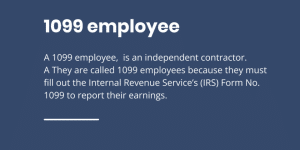Updated April 2, 2025
Understanding FEHA Retaliation in The Workplace
In California, the Fair Employment and Housing Act (FEHA) serves as a cornerstone for protecting employees against discrimination and retaliation in the workplace. This comprehensive legislation is designed to safeguard individuals who engage in activities that oppose unlawful practices, such as harassment or discrimination based on race, gender, disability, and other protected categories. Understanding your rights under FEHA is essential, especially if you believe you have faced retaliation for asserting those rights.
What Constitutes FEHA Retaliation?
Retaliation under FEHA occurs when an employer takes adverse action against an employee for engaging in protected activities. Such activities may include:
- Opposing workplace discrimination: This includes reporting or resisting discriminatory practices or harassment.
- Filing a complaint: Employees have the right to file complaints regarding harassment or discrimination without fear of retaliation.
- Testifying or assisting in investigations: Employees who participate in investigations or testify in legal proceedings are protected from retaliatory actions.
- Requesting accommodations: Employees who request reasonable accommodations for disabilities or religious practices are also protected.
Adverse Actions Defined
An adverse action can encompass a wide range of employer behaviors, including but not limited to:
- Termination of employment
- Demotion or reduction in pay
- Unfavorable job assignments
- Harassment or intimidation
- Denial of promotions or benefits
To establish a claim of retaliation, an employee must demonstrate that the adverse action was directly linked to their protected activity.
Elements of a FEHA Retaliation Claim
To successfully prove a FEHA retaliation claim, the employee must establish four critical elements:
- Engagement in a protected activity: The employee must show they participated in activities protected by FEHA.
- Adverse employment action: The employee must demonstrate that the employer took an adverse action against them.
- Causal connection: There must be a clear link between the protected activity and the adverse action, indicating that the latter was motivated by the former.
- Harm: The employee must prove that the adverse action caused them harm, such as financial loss or emotional distress.
Examples of FEHA Retaliation
Understanding real-world scenarios can help clarify how FEHA retaliation manifests. Here are a few illustrative examples:
- Reporting Harassment: An employee, Christina, reports sexual harassment by a supervisor. In retaliation, the supervisor fabricates a negative performance review, which leads to her dismissal.
- Witnessing Discrimination: Sergio, a witness in a harassment case, finds himself laid off shortly after testifying against the employer.
- Requesting Accommodations: Lu asks her supervisor to avoid scheduling her on Saturdays due to her religious observance. Soon after, she is informed that her employment is "not working out" and she is terminated.
These examples highlight the various ways retaliation can occur in response to protected activities.
Steps to Take if You Experience Retaliation
If you believe you have faced retaliation under FEHA, it is crucial to take the following steps:
- Document Everything: Keep detailed records of incidents, including dates, times, and witnesses. This documentation will be vital if you decide to pursue legal action.
- Report the Retaliation: If you are still employed, report the retaliatory behavior to your supervisor or the human resources department. Employers are often required to investigate such claims.
- File a Complaint with the California Civil Rights Department (CRD): If internal reporting does not resolve the issue, you may file a complaint with the CRD. This step is necessary before you can pursue a lawsuit.
- Seek Legal Counsel: Consult with an employment lawyer who specializes in FEHA cases to understand your rights and options. They can guide you through the legal process and help you build a strong case.
The Importance of Timeliness
It is essential to be aware of the time limits for filing complaints regarding FEHA retaliation. Generally, you must file a complaint with the CRD within three years of the retaliatory action. After receiving a "right to sue" notice from the CRD, you have one year to file a lawsuit in a California Superior Court.
Potential Damages for FEHA Retaliation
If you successfully prove a claim of retaliation under FEHA, you may be entitled to various damages, including:
- Lost wages and benefits: Compensation for the income and benefits you would have received had the retaliation not occurred.
- Emotional distress: Damages for the emotional pain and suffering caused by the retaliatory actions.
- Attorney’s fees: If you prevail, the court may award attorney fees, making it easier for you to pursue justice.
- Punitive damages: In cases of egregious employer misconduct, punitive damages may be awarded to deter similar behavior in the future.
Legal Protections Beyond FEHA
While FEHA provides robust protections, other laws may also offer recourse against retaliatory actions. For instance, the federal Equal Employment Opportunity Commission (EEOC) enforces laws against workplace discrimination and retaliation. Employees may file complaints with the EEOC, which can lead to further investigations and potential legal action.
The Role of Legal Representation
Navigating the complexities of employment law, particularly in cases of retaliation, can be challenging. Engaging an experienced employment attorney can significantly enhance your chances of a favorable outcome. They can help you understand your rights, gather evidence, and represent your interests in legal proceedings.
Conclusion
Understanding FEHA retaliation is crucial for every employee in California. The law provides essential protections for individuals who engage in protected activities, ensuring they can do so without fear of adverse consequences. If you believe you have faced retaliation, take action by documenting your experiences, reporting the behavior, and seeking legal counsel. Remember, you have rights, and there are resources available to help you assert them.
If you have faced retaliation at work, don’t hesitate to reach out for help. Legal professionals specializing in employment law can provide guidance and support to help you navigate this challenging situation. Your rights matter, and you deserve to be protected in your workplace.
Call Setyan Law at (213)-618-3655 to schedule a free consultation.






